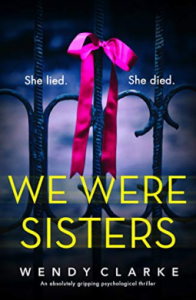
It’s the anniversary the siblings spend together like every year. Kate has neatly prepared everything in her small apartment for her oldest brother Peter and the younger one Ray with his wife Liz. 16 years were not enough to get over the loss of her twin sister Elaine whom she remembers like yesterday. The atmosphere is tense and soon after dinner the guests leave, but Ray returns with a special present which sends Kate back in the time when she and Elaine were just kids, then teenagers and the fateful day of her death. Yet, it was not just this tragic event that made the family unhappy, even long time before, none of them did real lead the life they wanted and, seemingly, neither do they in the present.
I was a bit astonished about the novel, even though the title is “Dinner Party”, Sarah Gilmartin grants this only a brief chapter in the novel, however, it is the event that triggers the memories in Kate and explains how she became the lonely, highly obsessive woman we meet at the beginning. The author added a subtitle, “A Tragedy”, which is totally adequate in terms of the suffering and the sorrowful event the protagonist has to go through. Yet, I am not sure if the reader can feel something like a catharsis while reading. For me, it was a very sad novel showing the impact parents and the family constitution can have on a child and the adult he or she becomes.
Quite naturally, the young twin sisters have a strong bond and can understand each other without words. On their farm, they are far away from other kids and exposed to their mother’s moods. She comes from one of the best families and expects her kids to excel in their ascribed fields, Kate play the piano, for Elaine it is horse-riding. The older brothers have long been a disappointment for the mother, especially Peter with his plans to emigrate to the US. Becoming teenagers does not help the situation and the tensions between mother and father, but also between the two sisters become more and more obvious.
The protagonist is naturally the most striking character. Even as kids, she and Elaine have never been really equal. Elaine was to more extrovert and outgoing twin, she dictated for both of them what to do. From fear of her mother’s frequent outbursts, Kate quickly tries to become the diligent and obedient girl who does everything right. Also as a teenager, she does not rebel but she cannot get over the feeling of being the less loved daughter, the one who does not achieve what is expected from her, the one who can never do anything right. Controlling her feelings and emotions ultimately leads to an obsessive behaviour and when she has found something that is totally controllable, she quite naturally develops an eating disorder.
Dysfunctional relationships, a lack of love and positive support – the best ingredients to hinder a girl from becoming an emotionally stable and self-confident adult. The experiences of the young Kate reflect the problems she shows as an adult. She isn’t able to have a good relationship, she is much too insecure and, on the other hand, she never could get free of her mother and her impact on her feelings. A great character development which gives you also a lot of food for thought.




